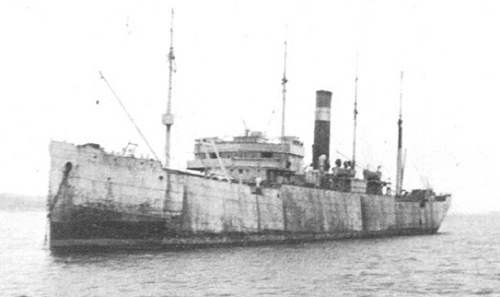
| Glasgow Digital Library | Voyage of the Scotia | BRUCE | PEOPLE | SHIP | ANTARCTIC | INDEX |
|---|
'In the meantime in Buenos Aires I had got in touch with Dr Francisco Moreno, donor and Director of the La Plata Museum, and with Mr W G Davis, Director of the Argentine Meteorological Office, as well as with Senor [Escalente], Minister of Agriculture, and they accepted my proposal, with the sanction of President Roca, that the Argentine Republic should take over the Meteorological and Magnetic Station I had set in Scotia Bay, and which I had left in charge of Mossman. My offer included passing over free of cost the houses and stores I had already landed at Scotia Bay, and taking down with me, passage free, four Argentines, and additional coal and stores for the station. If Mossman was willing, I was given powers to appoint him head of the observatories, under the Meteorological Office of the Argen tine Republic. The Argentine authorities agree to undertake the relief of the party within twelve months. Thus I was able to secure the continuance of the Meteorological and Magnetical Observatories started by the Scotia; and it is pleasing to relate that up to the present time (1912) the Argentine Republic are still continuing uninterruptedly, for the tenth year, these observatories, which have already proved to be not only of scientific but also of great economic value. If our prolonged delay accomplished this only, the result was well worth the sacrifice of valuable time, during which the Scotia could have been carrying out still more extensive exploration than she did that season."
'During the month's sojourn in Buenos Aires we met with the most kindly reception, not only on the part of the Argentine authorities and citizens, but especially from the British community. The President of the Republic, Dr Roca, specially invited me to wait upon him. I was also received by the Vice-President, the Minister of Agriculture, the naval and port authorities, who one and all gave every possible help for the welfare of the Scotia. I have especially to thank the naval authorities who dry-docked the Scotia in the naval dry dock free of charge, and repaired some of our trawling gear and gave us other valuable help; while the port authorities not only eliminated all port charges, but also sent the tug out during the strike, without charge, to take the Scotia in on Christmas Eve, when she was stranded with out coal in the outer roads. The naval authorities also provided a special guard of marines, night and day, to protect the Scotia during the prolonged and serious dock strike.
'Eventually on January 21, 1904, we set sail. The great heat we experienced in Buenos Aires so soon after our wintering in the Antarctic greatly told on our health; and the plague of flies, especially on board the Scotia, which lay not far off the cattle-boats and sheds, made us ill, and the crew, I regret to say, especially suffered. I often wished that I had had money enough to put most of them ashore at the sailor's home. All of us were almost continually victims to diarrhoea, which greatly weakened us, and we were heartily glad to get away to sea again to recuperate.'

Coronda, which carried the ashes of Willaim Speirs Bruce to South Georgia
| Glasgow Digital Library | Voyage of the Scotia | BRUCE | PEOPLE | SHIP | ANTARCTIC | INDEX |
|---|